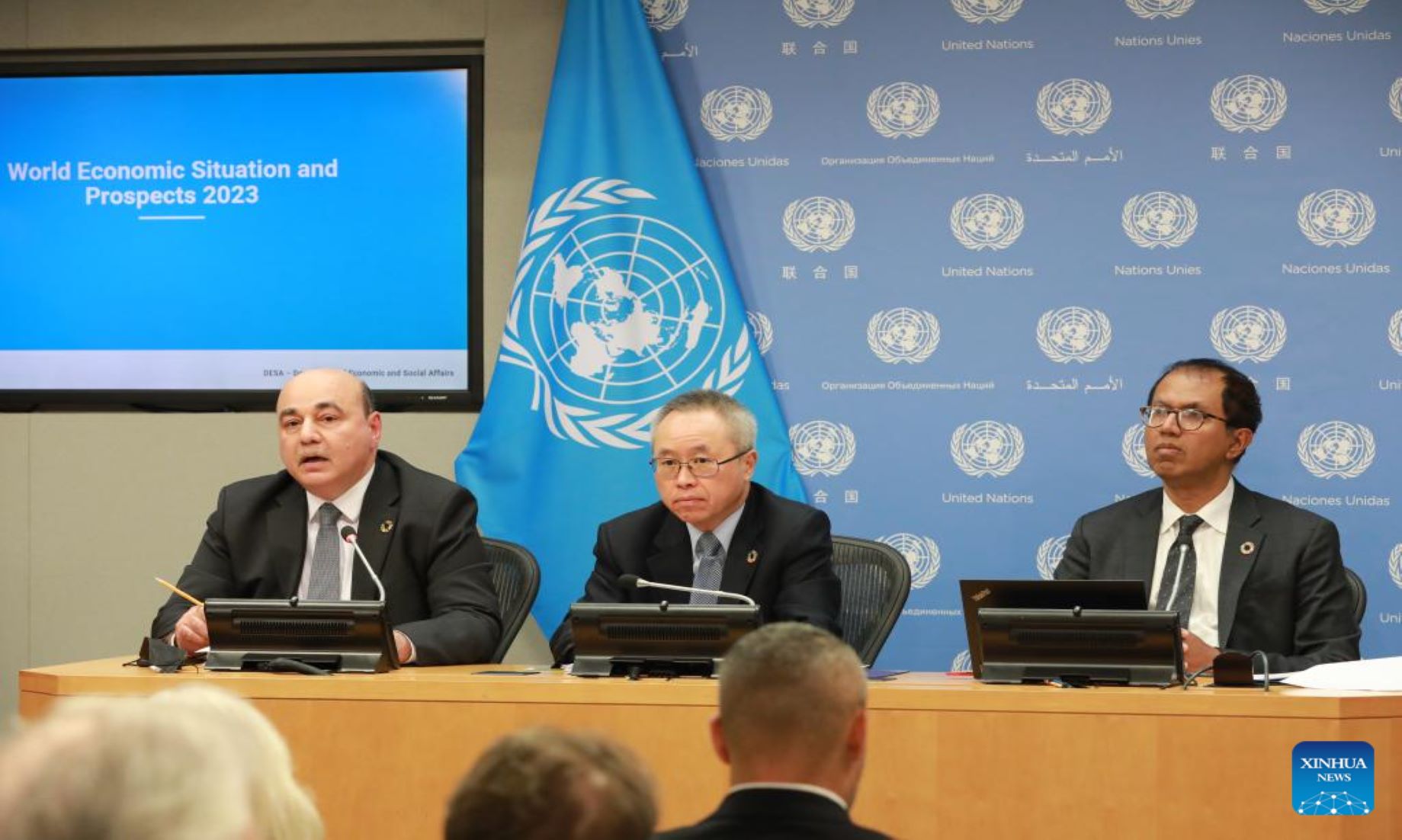UNITED NATIONS, Jan 26 (NNN-XINHUA) – World output growth is projected to decelerate from an estimated 3.0 percent in 2022, to 1.9 percent in 2023, marking one of the lowest growth rates in recent decades, according to a UN report launched yesterday.
The UN World Economic Situation and Prospects 2023 report, predicted global growth to moderately pick up to 2.7 percent in 2024, as some macroeconomic headwinds are expected to begin to subside next year.
Amid high inflation, aggressive monetary tightening and heightened uncertainties, the current downturn has slowed the pace of economic recovery from the COVID-19 crisis, threatening several countries – both developed and developing – with the prospects of recession in 2023.
The report said, growth momentum weakened in the U.S., the EU and other developed economies, adversely impacting the rest of the global economy through a number of channels.
In the United States, gross domestic product (GDP) is projected to expand by only 0.4 percent, in 2023, after an estimated growth of 1.8 percent in 2022, the report said.
Growth in China is projected to moderately improve in 2023. With the government adjusting its COVID policy in late 2022, and easing monetary and fiscal policies, China’s economic growth is forecast to accelerate to 4.8 percent in 2023, according to the report.
It pointed out that, tightening global financial conditions, coupled with a strong dollar, exacerbated fiscal and debt vulnerabilities in developing countries.
Most developing countries saw a slower job recovery in 2022, and continue to face considerable employment slack, the report said.
It warned that, slower growth, coupled with elevated inflation and mounting debt vulnerabilities, threatens to further set back hard-won achievements in sustainable development, deepening the already negative effects of the current crises.
“The current crises are hitting the most vulnerable the hardest – often through no fault of their own. The global community needs to step up joint efforts, to avert human suffering and support an inclusive and sustainable future for all,” Li Junhua, UN undersecretary-general for economic and social affairs, said in a statement, on the release of the report.
The report called for governments to avoid fiscal austerity, which would stifle growth and disproportionately affect the most vulnerable groups, affect progress in gender equality and stymie development prospects across generations.
It recommended reallocation and reprioritisation of public expenditures, through direct policy interventions that will create jobs and reinvigorate growth, noting, this will require strengthening of social protection systems, ensuring continued support through targeted and temporary subsidies, cash transfers, and discounts on utility bills, which can be complemented with reductions in consumption taxes or custom duties.
Stronger international commitment, the report said, is urgently needed, to expand access to emergency financial assistance, to restructure and reduce debt burdens across developing countries, and scale up Sustainable Development Goals financing.– NNN-XINHUA





